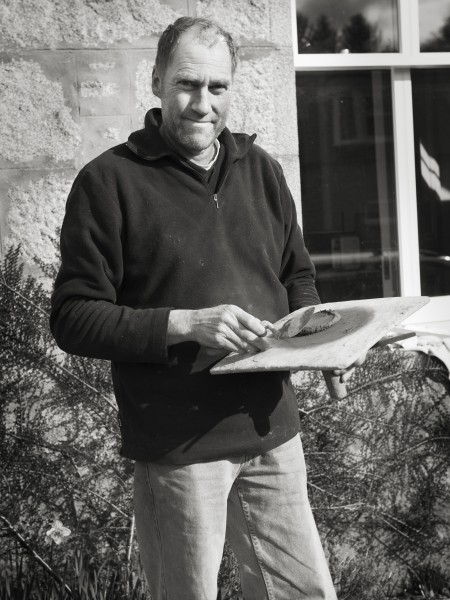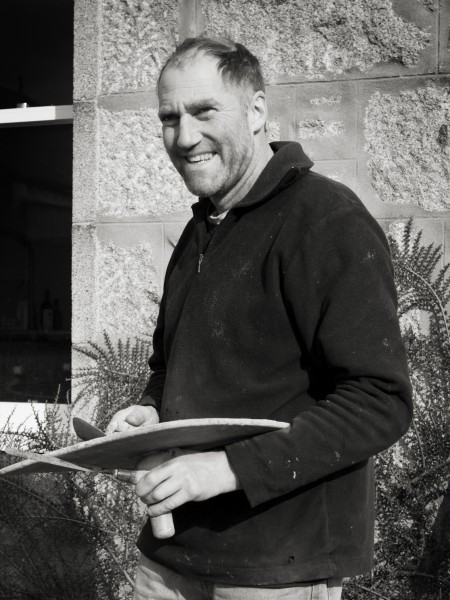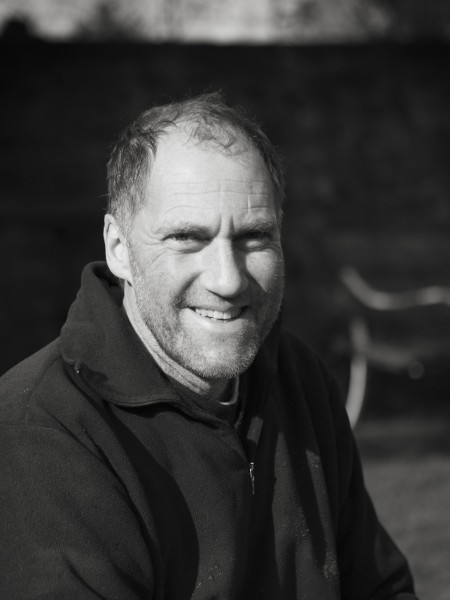Q. What is your principle professional skill?
A. Stonemason.
Q. long have you been practising your skill?
A. Twenty years.
A craftsman is what other people call you.
Being a craftsman is a lot to do with a certain philosophy, of doing things well – you could just as easily make a bad job but it’s the choice you make to do the best you can.
Q. How did you learn your skill? How long did it take?
A. Three years training with a stonemason and then three years bricklaying.
Q. Are there any other people in the region doing what you do?
A. Yes.
Q. How important do you think your skill is for the region?
A. I think it’s very important.
There is still demand because of the old houses.
Q. How has your profession evolved over the last few decades?
A. I would say it’s devolving. There is more interest in numbers, with bricklaying and block laying. It’s more methodical and people are more interested in that kind of building.
Building a wall for example isn’t quantifiable, it’s a more intuitive way of working. It is appreciated but there is less of it. A brick layer not interested in laying stone – it’s quicker to work with bricks or blocks. It’s a different way of working.
Q. What are the main differences between now and when you started?
A. I think the job remains the same, I‘m just getting older.
Q. How do you anticipate the future to be for your skill?
A. Tiring.
Q. How important do you think it is to pass the skill on to the next generation?
A. I think it is very important.
Q. How could that be achieved?
A. Apprenticeships, but that’s difficult to do if you are working on your own.
Q. Would you be prepared to train someone?
A. Probably not as it ties you up. I work on my own and I would have to be working in a different way if had an apprentice. You would still have to make a profit somehow which would be difficult to manage as a lot of my work is weather dependent.
It’s not something you could take on half-heartedly, you would want to be able to do a good job of it.
I do think that there must be pride in seeing work well done by someone that you have taught.
Q. Do you think that society should feel obliged to find a way of preserving such skills?
A. Oh yes.
Japanese have a system where craftspeople are amongst the most highly revered in society.
Part of the problem is that it’s all part of competitive market; a bad tradesman can still charge as much as a good craftsman.
Q. Does having a skill change the way you see the world?
A. I’ve always had a skill so I find that difficult to answer.
I can see that because I have a craft my quality of life is much better and I can use my skill to work and live wherever I like.
Q. What kind of rewards do you get from your skill, monetary and/or otherwise?
A. Monetary, it’s just making a living but I do get satisfaction. I think everyone who does things well does get rewarded by public approval.
People do appreciate what you’ve done.
Q. What impact has broadband and the internet had on your work?
A. None.
Q. How do you use the internet for your work?
A. Sometimes order tools.
Q. What, if anything, could be done to help to preserve your skills and support your profession?
A. Help for training and apprenticeships and learning on the job would go a long way.
If it’s a dying trade should be more assistance. You need training and experience to be able to work efficiently and with skill.
e-mail: notquitejo90@aol.com


